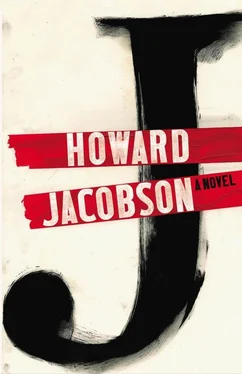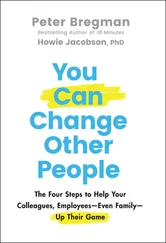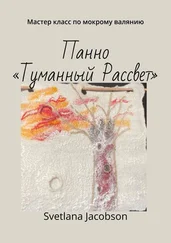‘No,’ Kevern said. ‘No, thank you,’ remembering the amount of contraband music and words belonging to his father that was hidden away in his loft. It hadn’t occurred to him any of it could be worth money.
The bedroom was, or at least had been, ornate. The bed was a four-poster. The carpet vermilion and gold, the drapes similar, sentimental photographs of famous department stores with queues outside adorned the wall. A large bath sat in the middle of the bathroom on gilded griffin’s claws, now broken and discoloured. It will topple, Kevern thought, if we get into it together. He didn’t like the look of the towels either: though they must once have been sumptuous, each one large enough to wrap an entire bath-oiled family in, they now hung, grey and textureless, over rusted rails.
He went to the window and gazed out towards the park. At school he had read descriptions of the Necropolis written by post-apocalyptic fantasists of a generation before. They were published as an anthology intended as light relief for the pupils, a propaganda joke showing just how wrong people could be when they let their imaginations — and indeed their politics — run away with them. But the anthology was later withdrawn, not because the post-apocalyptics had been proved right, but because the truth was not quite the resplendent rebuttal of their vision it should have been. Kevern remembered the gleaming vistas of technological frenzy dreamed up by one of the writers, citizens of the Metropolis of Zog sitting on brightly coloured tubular benches conversing with their neighbours via bubbles of video speech transmitted faster than the speed of sound by satellite. They had given up talking to one another because talk was too cumbersome. Another envisioned the population living in cages underground, dispersing their seed by means of a carefully regulated system of electronic cartridges which travelled through translucent pipes, along with electricity and water. Otherwise they neither enjoyed nor wanted any other form of human contact. The alternative vision was of devastation — open sewers strewn with the debris of a consumer society that no longer possessed the will or the wherewithal to consume, abandoned motor vehicles with their doors pulled off, electricity pylons which seemed to have marched into the city from the country like an invading army and were now uprooted, bent double like dinosaurs in pain or flat on their backs like. . Kevern couldn’t remember what they were like , only that everything was like something else, as though what had destroyed the city was not disease or overpopulation or an asteroid but a fatal outbreak of febrile fantasy-fiction metaphor.
One way or another the destruction wrought by electronics haunted all these writers’ imaginations. So much ingenuity and invention bringing so little happiness. In their own way, though, they were optimistic and triumphalist, no matter that they pretended otherwise, each recording the victory of the writers’ analogical fancy over nature.
What these writers gloomily and even hysterically prophesied, Kevern thought, was in fact a fulfilment of their private wishes.
Nothing gleamed in the city Kevern looked out on. The people on the streets had not turned into walking computer screens, riding translucent vehicles that sped along on tracks of spun steel. But neither was it a wasteland that could at least quicken the heart with horror. Yes, the bedecked cranes appeared melancholy, reminding him of drunks fallen asleep in doorways after a party, and after a while the brightly coloured retro clothing of the pedestrians and shoppers began to show as desperate, as though they were waiting for a carnival that was never going to start, but traffic lights worked and, though the cars looked even older than his, they still had their doors, their lights, their windscreen wipers, and — Kevern could clearly hear them from five floors up and through closed windows — their horns. There was no congestion, no sense of drivers fleeing an infected city in one direction, or rushing to join the techno-mayhem from another, so the horn-blowing must have denoted more indurated irascibility than specific impatience. Over in the park, men hooded like Eskimos — saying what things were ‘like’ went with the apocalyptic territory, Kevern realised — walked ill-tempered dogs, tugging at their leads, wanting them to do what they had come to the park to do and then be off. Every now and then a dog and his master relieved themselves in tandem. Though only the man appeared to relieve himself in anger. An occasional better-off-looking person walking a better-off-looking dog kept his distance, not afraid exactly, but routinely careful. Neither kind appeared to be taking pleasure in the outing. Kevern kept watching, expecting to see an eruption of hostilities, but nothing eventuated. A quiet moroseness prevailed, that was all. An all-pervading torpor that belied the colours, bored the dogs, and made the very light appear exhausted.
Kevern guessed that if you wanted to see blood spilled you had to wait till it got dark.
The pavements on the main roads were unswept, but they weren’t the debris-strewn sewers piled with wreckage he’d read about in his school anthology. It wasn’t the apocalypse.
There weren’t any powerful similes to be made. Nothing was like anything.
So what was it? It was a city seen through a sheet of scratched Perspex. For all the variegations of hue, it had no outlines. People blurred into one another. Kevern wondered if a wife would recognise her husband if she ran into him anywhere but in their home. Would either miss the other if they never returned home? And yet they had passed three cinemas and two theatres on the drive in, all advertising romantic musicals. Love — that was the universal subject. Love to play guitars to. Love to dance to. Love to sing about. Old and young, rich and poor, the indigenous and the children of immigrants — love!
Ailinn joined him at the window. ‘Well one thing this does do,’ she said, ‘is make you miss the Friendly Fisherman.’
He couldn’t tell if she was exaggerating.
They decided against going out to eat, ordered the Lebanese they’d promised each other — it turned out to be no more than a cold plate of aubergine mushed in a dozen different ways — and went to bed.
The mattress dipped in the middle.
‘Christ!’ Kevern said ruminatively, looking up at the flaking ceiling.
Ailinn agreed with him. ‘Christ!’
iii
They took a late breakfast — mixed mushed aubergines again — in a room that must once have suggested a pasha’s pavilion (mosaic tiled floor, mirrors on the ceiling, carpets on the walls), but now looked bored with itself — a street-corner bric-a-brac shop going out of business. Sensing that the permanent residents of the hotel weren’t looking for conversation, Kevern and Ailinn kept their eyes lowered. They were served mint tea which Kevern failed to pour from the requisite height. ‘It tastes better if you aerate it like this,’ the only other person in the breakfast room not in a keffiyeh called across from a nearby table. He was holding his own glass teapot aloft as though he meant to take a shower from it. ‘And you get more foam.’
Kevern, feeling like a country boy, thanked him.
‘Where are you two from?’ the man asked.
Kevern sneaked a look at Ailinn. How did she feel about talking to a stranger? She nodded imperceptibly. ‘Port Reuben,’ Kevern said.
The man, as broad as a door and dressed like a widely travelled photographer in khaki chinos and a cotton jacket with a thousand pockets, shook his head. ‘Never heard of it. Sorry.’
‘That’s all right,’ Kevern said. ‘We aren’t on the line about it. And you?’
‘I’m not on the line about it either.’
Читать дальше












